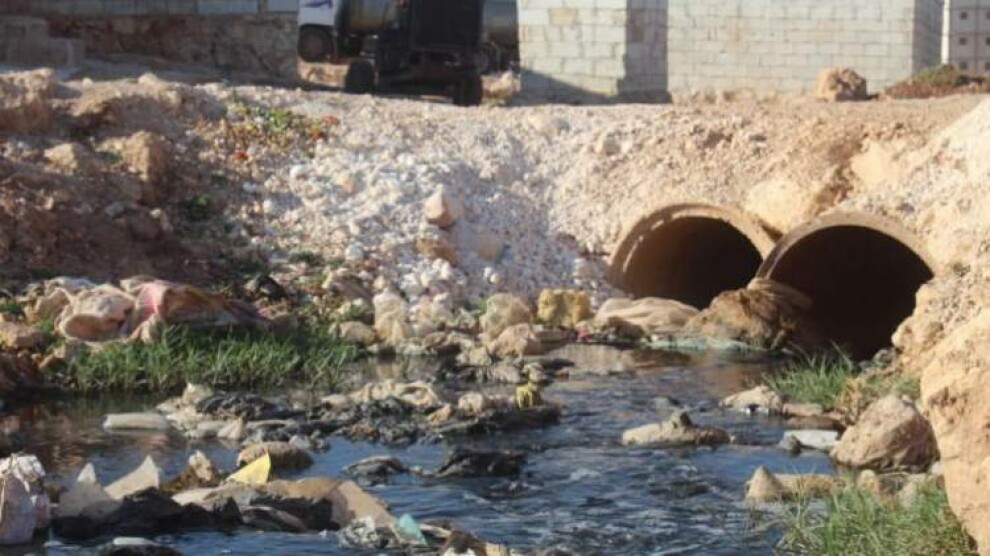Open sewers in Idlib spread diseases
The limited opportunities in the refugee camps of Idlib cause many diseases; the people now face other diseases due to open sewers in the camps. Women and children getting sick due to the open sewers cannot access health services.

SUHÊR EL-IDLIBİ
Idlib- Women and children living in refugee camps in Syria are at risk of getting many diseases. The number of people getting a disease due to the open sewers has been increasing in the camps. The temperatures above 40 degrees also pave the way for the spread of diseases. There are approximately 1.300 refugee camps in northern Syria and more than one million people, mostly women and children, have lived in these camps. 380 of these camps are not official camps.
Eight-year-old Rawa Xalid got impetigo in the Dêra Hesen refugee camp due to the open sewers in the camp. Her mother Reham El-Saer told us that they haven’t been able to access their basic needs since they settled in the camp.
“Not only my daughter but also many other children in the camp got this bacterial infection of the skin. We tried to treat them by washing their heads but this method didn’t work. They got this disease from the open sewers in the camp. And nothing is done to close these sewers.”
She got typhoid fever in the camp
40-year-old Samira El-Mehmud got typhoid fever in the camp due to the open sewers. “In summer, the sewers smell bad. There are sewer flies everywhere. They spread diseases in the camp,” Samira El-Mehmud said that doctors advise them to stay away from the open sewers, “Where can we go? I have no place to go.”
Warn of doctor
38-year-old Safaa Al-Jundi, a doctor, warns of the dangers of open sewers in the camps. Safaa told us that the current situation in the camps has physiological effects as well as psychological effects on people.
No response to her complaints
Salim Al-Abed, the director of El-Wefa refugee camp located in the north of Kelli, has filed many complaints about the open sewers in the camp. “The open sewers must be closed. I have filed many complaints to the regional council and non-governmental organizations but I haven’t received any response until now.”
